ICT2Scale demonstrates the vital importance of ICT tools for dryland farmers
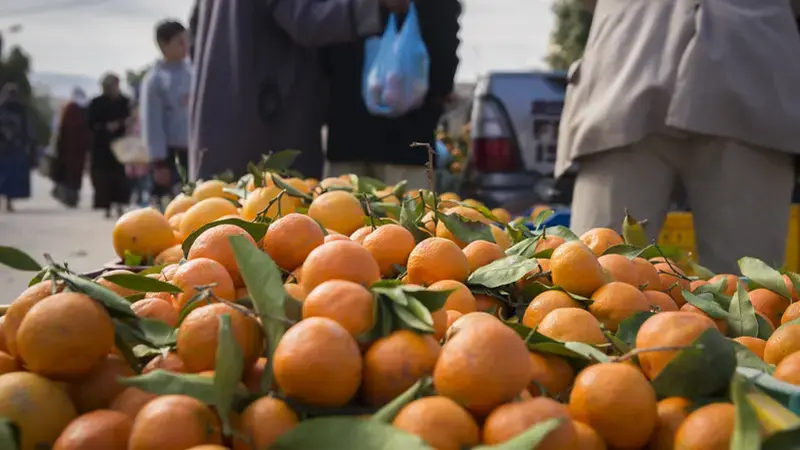
Historically, digital extension services for Tunisian farmers have been under-resourced and outdated, hampering agricultural productivity, income, and climate adaptation gains in the country.
To fill gaps in essential data informing decisions at the farm level, the ICT2Scale project, launched in Tunisia in 2019, introduced Information and Communications Technology (ICT) services to family farmers.
The project wrapped this month, but its legacy will live on.
Dr. Boubaker Dhehibi, the ICARDA Agricultural Economist who co-leads ICT2Scale, explains that ICT provides much-needed tools for vulnerable rural populations.
"Through ICT, farmers are aware of new opportunities for income generation and discover helpful agricultural technologies and innovations," he explains.
To fulfill its ambition to improve farmers' access to knowledge and crucial farming-related information, the project designed three main ICT tools:
- E-learning modules
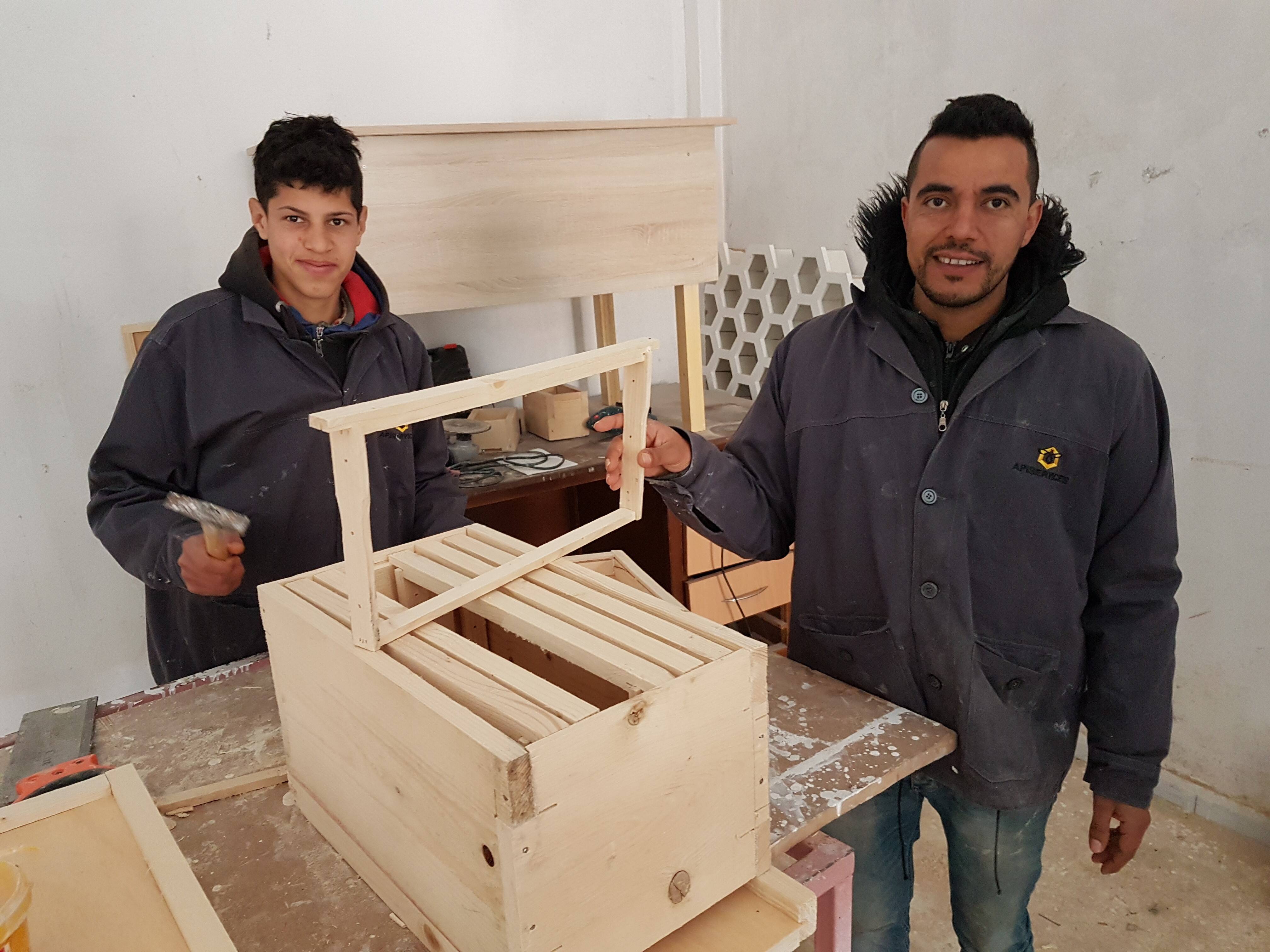
ICT2Scale developed eight free-of-charge e-learning modules in Arabic and French directed at extension officers, trainers, technicians, farmers, and students on topics ranging from cactus pear production, beekeeping, supplementary irrigation, and more. So far, around 175 participants have obtained an online certificate of completion.
While the participants rated all modules positively, some courses did exceptionally well, explains Udo Rudiger, ICARDA's Agricultural Innovation Specialist who leads ICT2Scale in Tunisia.
"Our extensive module on beekeeping was one of the most successful e-trainings we ran, along with our project development e-course, which provided crucial and straightforward tools on how to develop and run an agricultural project," he points out.
Dr. Dhehibi believes that the enormous success of the virtual beekeeping course was due to ICT tools that focused on specific activities with immediate impact at the farm level.
The COVID-19 pandemic also contributed to the success of ICT2Scale's e-learning modules, due to the overnight discontinuation of in-person training.
The Tunisian Agricultural Extension and Training Agency (AVFA), ICARDA's national partner on ICT2Scale modules development, was keen to develop this technology from the onset.
"AVFA is now building on those e-modules and will launch their own virtual courses soon," explains Mr. Rudiger. For Dr. Dhehibi, the fact that AVFA has gained ownership of this technology and plans to expand on it in the future is a resounding success for ICT2Scale.
- Technical SMS for farmers
Since July 2019, ICT2Scale has sent regular technical SMS messages to 1,000 small-scale farmers in the governorates of Kairouan, Zaghouan, and Jendouba. Developed by agricultural experts, the messages deliver valuable and timely technical information on cereals, vegetables, citrus, olive crops, livestock, forage production, and beekeeping.
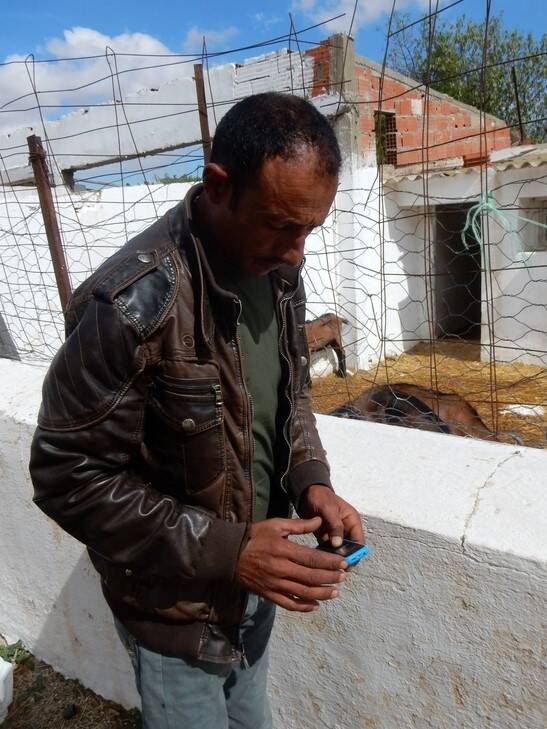
A survey conducted by the researchers at the end of the project found that 70% of farmers read the messages regularly and that men and women equally appreciated the service.
Interestingly, around 40% of the farmers surveyed are even willing to pay a small fee for the SMS service, provided that the information received is accurate, and shared at the right time.
- Green Number and the Kolfa App
"When ICT2Scale launched, we set up an info-line for farmers to obtain local market price information on inputs and agricultural produce," says Mr. Rudiger. For a small charge, farmers could dial in to enquire about the price of 10 commodities in five markets around Kairouan and Zaghouan.
But it did not work out as well as expected.
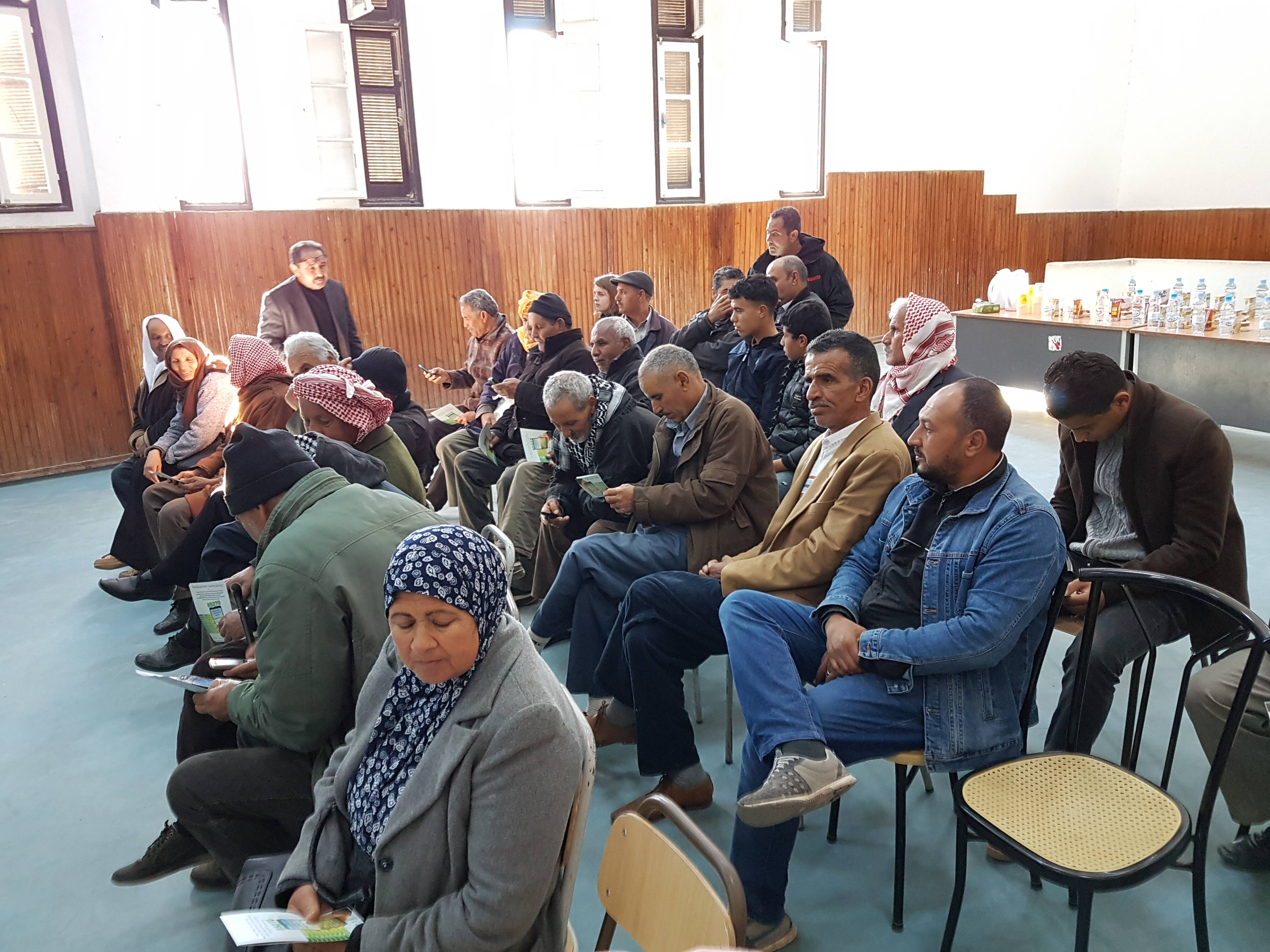
"The technology wasn't used much, probably because it was not free, and also because farmers had to make the initial effort to get the information," explains Mr.Rudiger.
ICT2Scale discontinued the info-line and developed a new app called 'Kolfa.' A free bilingual Arabic-French smartphone application launched over the summer, Kolfa provides market price information of over 150 agricultural commodities, including seeds, fertilizer, and animal feed to Tunisian farmers in near real-time.
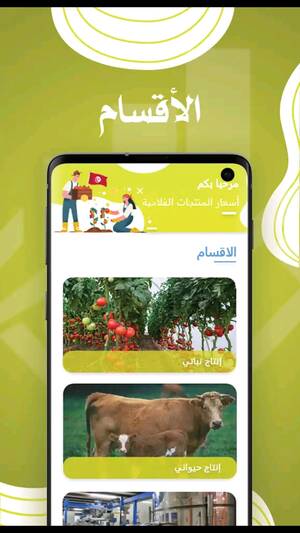
Financed by the BMZ, with the support of the CGIAR's Research Program on Policies, Institutions, and Markets (CRP PIM), Kolfa was developed by ICT2Scale in partnership with the National Observatory for Agriculture (ONAGRI).
Kolfa enables farmers to keep up to date with market fluctuations, crucial to informing their purchasing decisions - making them considerable savings.
Now that the project is closing, Dr. Dhebibi reflects on its impact.
"It is imperative to make progress in the field of digitalization in agriculture, especially for dryland family farmers," he says. ICT tools help small farmers learn about comparative advantages, innovation, new opportunities, and innovative technologies to better their livelihoods.
Mr. Udo Rudiger, for his part, is delighted by the uptake of ICT2Scale ICT tools by Tunisian farmers and national partners, especially given how little this technology was used just a couple of years ago.
"Our local partner is building on our work and making it their own. The project’s ICT innovations will continue to support small landholders in Tunisia in the future, and without ICARDA, which is the whole point," he concludes.
------------------
This work is made possible through the financial support of the German Federal Ministry for Economic Cooperation and Development (BMZ) and in collaborating with Deutsche Gesellschaft für Internationale Zusammenarbeit (GIZ) and the Tunisian Agency for Extension and Agricultural Training (AVFA).
